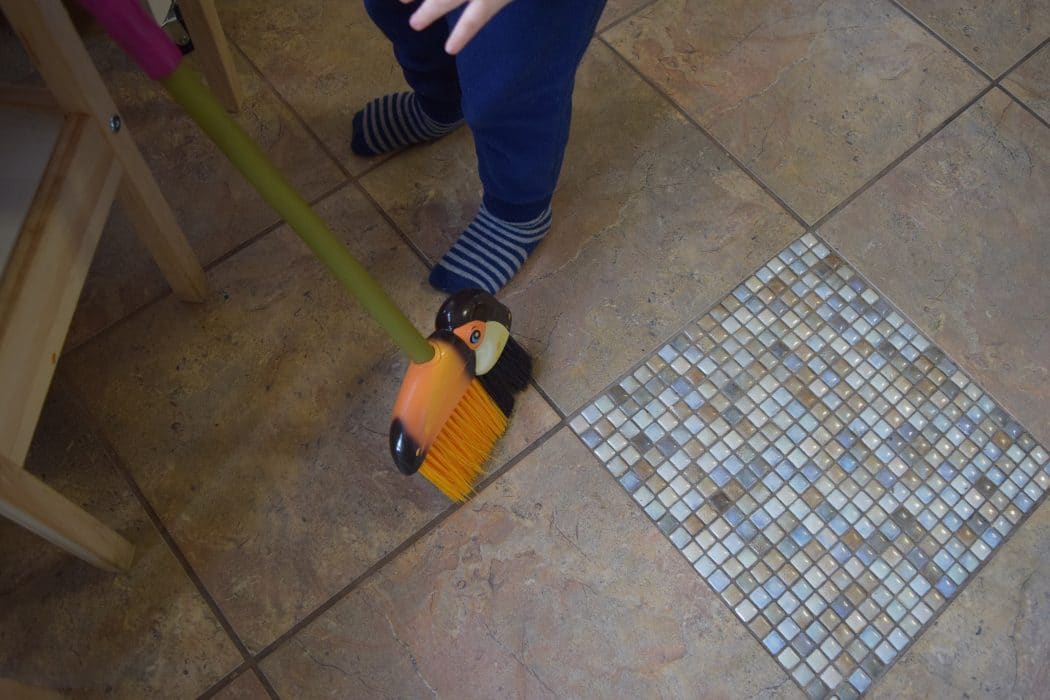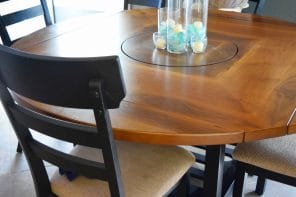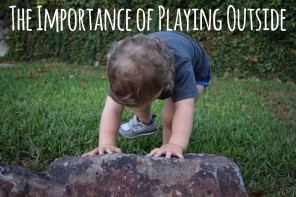The toddler has been saying, “mommy do it”, quite a lot lately. Everything from getting a toy for him from across the room to helping him eat a bowl of rice, it’s “mommy do it”. Now, he’s only 2 1/2 years old, so it’s really not a big deal now and fairly developmentally accurate for his age. But it’s starting to get me thinking about the way he handles responsibility and taking care of things himself in the future.
In thinking back to when I was a teacher, many of my students fell into the trap of always waiting for someone else to do something for them. I taught art, and I would often hear requests like, “can you just do it for me?” A goal that I am confident other parents have is that our children don’t ask questions like this as adults. We all want our kids to be able to be responsible, self-suffient adults that can cook themselves a meal and do their own laundry. It can be hard, after all, because these are our babies and we can’t help but want to do everything to make their lives easy. But teaching self-suffiency to kids so that they turn out to be responsible adults can be super simple. All it requires is a bit more of letting them take the wheel.
- Let them help out. Whenever there’s an activity that is safe enough for my toddler to try, I’ll invite him to help me. He measures and pours when I cook, has his own broom for sweeping, and helps with other chores around the house. The idea is to get him used to doing things himself as well as to teach him how to do them in the first place. Sometimes kids really don’t know how to do something.
- Give them special responsibilities. Going beyond just helping out, giving a child something special to be responsible for goes a long way in creating an independent kid. Of course, developmentally appropriate responsibilities are key. I would let my two year old care for a pet on his own. But, letting him be the one to deliver cookies to the neighbor while I stand back gives him something that is his and are first steps towards self-sufficiency.
- Assign chores. Chores are wonderfully beneficial to kids and a huge step in helping them to be self-sufficient. Giving them responsibility gives them the chance to practice life skills and to understand the positive feelings of pulling their weight in a group.
- Let things go. It’s really tempting to pick out our kids clothes so that they match and make sense for the weather. But sometimes giving the wheel to your child on insignificant things like clothing is the best way to foster self-sufficiency. Kids feel proud of making decisions themselves and learn from their own mistakes. Shoes uncomfortable because they chose not to wear socks? They learned that lesson themselves and take responsibility for their actions.
- Don’t jump in to solve a problem. Sometimes my son will get frustrated with something I know he can do, but will ask me for help. I offer helpful suggestions, but I wait for him to figure it out himself. This goes beyond just teaching him that I expect him to do things himself, it shows him that he is capable if he tries.
- Let them make mistakes. There are times when I see my toddler trying to something an incorrect way, such as balance something that I know will fall. I could dive in and show him how to do it properly, but what does he learn from that? That someone else will be there to accomplish his tasks or keep him from failing. Frustration, failing, and mistakes are part of life and an important factor in teaching kids responsibility. They learn to own up to their own mistakes and to not avoid situations where they may fail.
- Their things are their responsibility. Although smaller children need help with this concept, it’s important for kids to be responsible for their own belongings. If they decide to bring a toy to the park, remind them that they are in charge of keeping track of it and bringing it home. This helps to teach kids to value what they own and, as a result, take care of their belongings. It also helps them to be mindful of being responsible for themselves.






